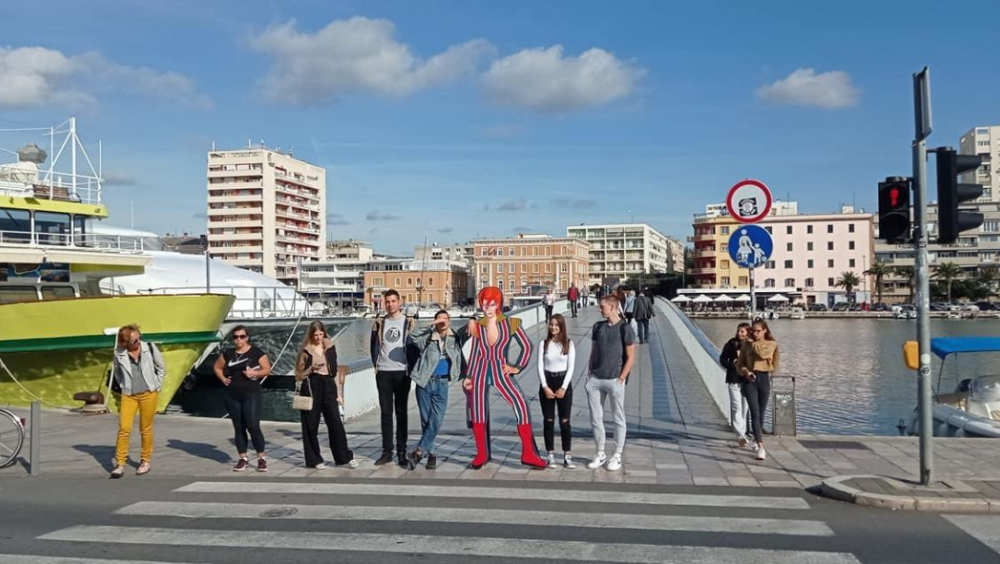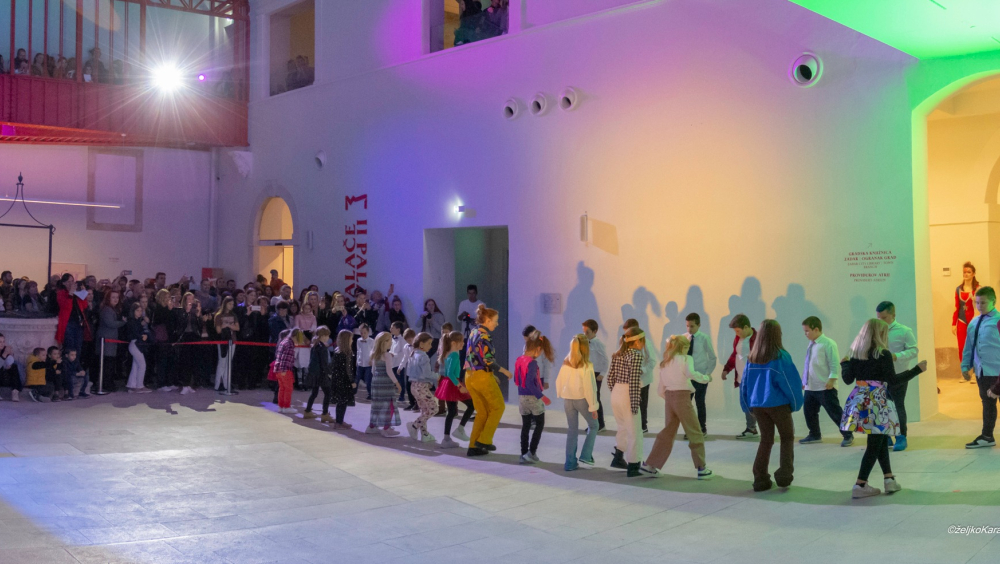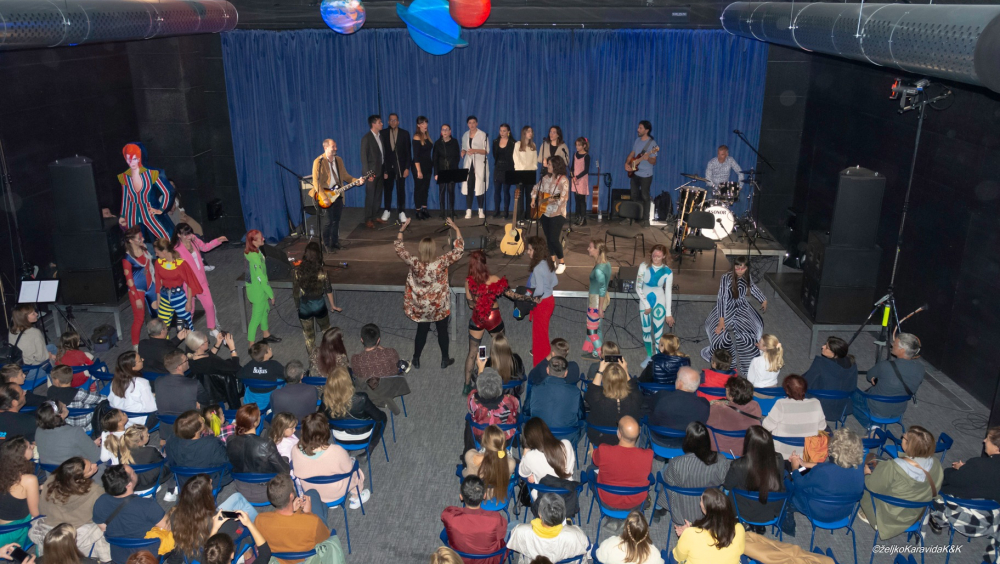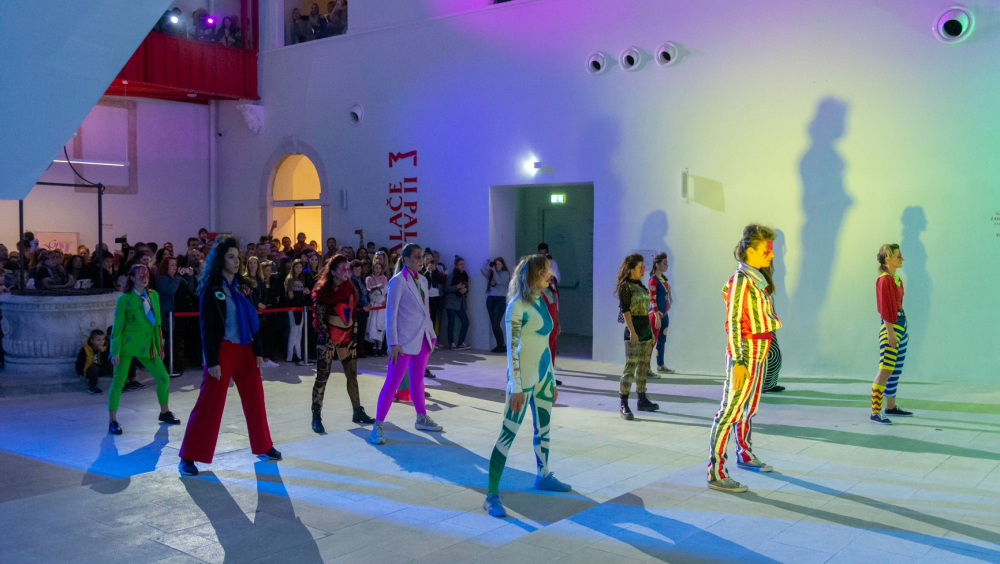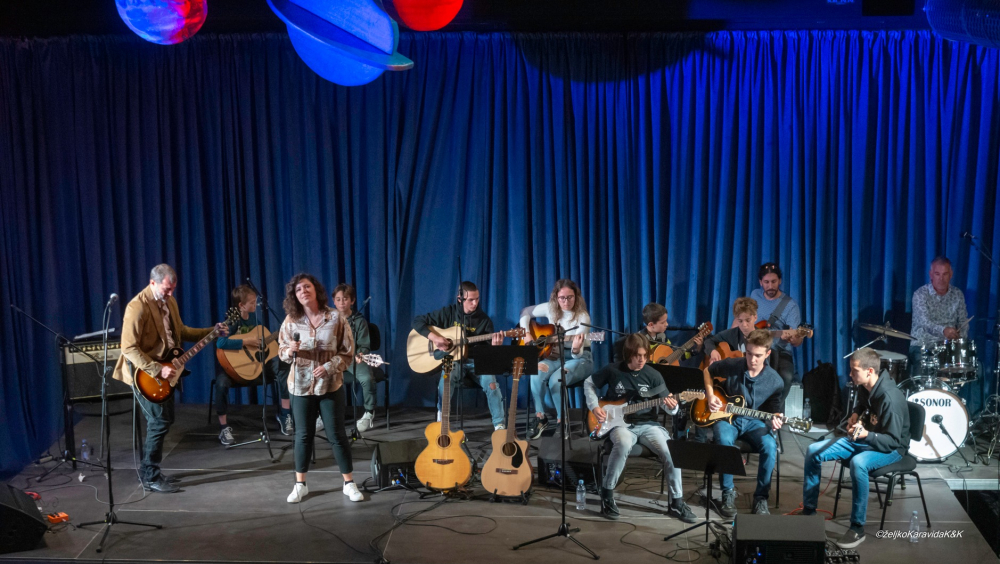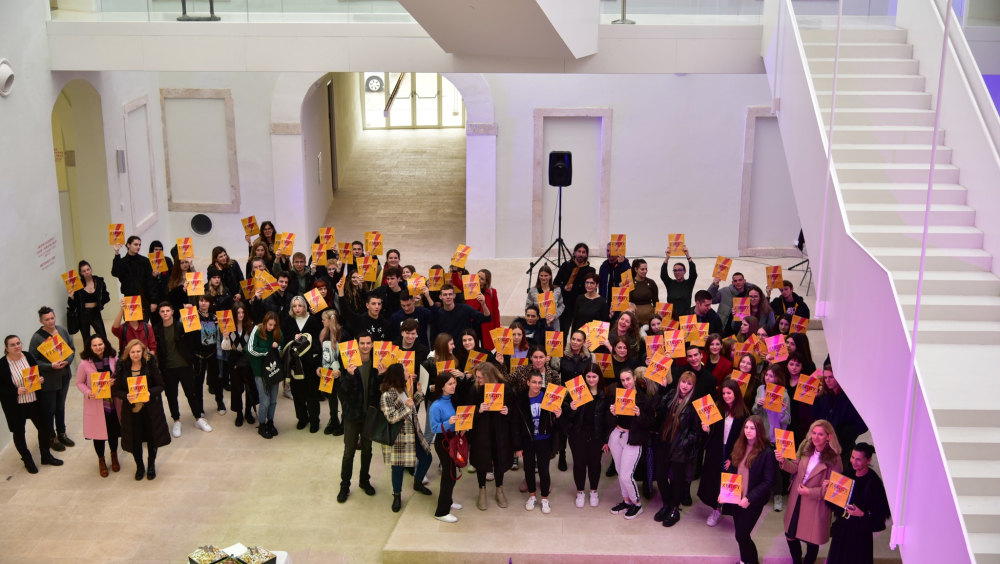Providurova plug-in: Dora
Since its beginning in 2021, the Providurova plug-in project was formed in the direction of audience development through the inclusion of the most sensitive group – young people. This story is no exception. It marks 100 years since the death of Dora Pejačević, outstanding Croatian composer and a strong female character from the late 19th century. She was an intellectual influenced by philosophers such as Friedrich Nietzsche, Arthur Schopenhauer and Henrik Ibsen. More precisely, her own life story connects Europe. She was born in Budapest, part of her life and creativity spent in Croatia, married to an Austrian nobleman, performed her works in London, Dresden, Stockholm, Vienna and others, and found the final resting place in Munich. All of this connects a large part of Europe, and all in a single life story. The Providurova plug-in: Dora will be implemented by the University of Zadar and Zadar Concert Office, the partners in this project, and will consist of several activities: historian lectures, urban female walks, treasure hunt, wall mural and performances. Five high schools, one association and four institutions in the field of culture and education in Zadar will produce over 100 participants and at the same time perform and implement program available to a wider audience. By participating, young people will not only get to know the prominent persona in Croatian history, but will also get to know the amazing strength of femininity, dedication and persistence. They will discover Dora’s personality and work while creating their own works on this topic and cooperating with different institutions in the respectable cultural context of the II Palaces, thus securing sustainability of the Providurova plug-in project.
Did you know? In Croatia, when someone says Dora, people do not usually think of Dora The Explorer, but rather of Dora Pejačević – outstanding Croatian composer. And life of Dora is a story itself.
Countess Maria Theodora Paulina (Dora) Pejačević was a Croatian composer and a member of the Pejačević noble family who lived in the late 19th and the beginning of the 20th century. She was one of the composers to introduce the orchestral song to Croatian music and her Symphony in F-sharp minor is considered by scholars to be the first modern symphony in Croatian music. Moreover, she left behind a considerable catalogue of 58 opuses (106 compositions), mostly in late Romantic style, including songs, piano works, chamber music, and several compositions for large orchestra, arguably her best. Her life is the subject of the fictionalized Croatian biographical film Countess Dora (1993), directed by Zvonimir Berković and starring Alma Prica and Rade Šerbedžija.
However, this story is about marking 100 years since her death (1923-2023) in which Zadar high school and university students, musicians, historians, cultural and educational institutions will revive her character and form it into a creative program – Providurova plug-in: Dora. Providurova because that is where the majority of activities will take place (eng. Providur’s Palace in Zadar). Plug-in because music. Dora because Dora.
The program will be implemented by the University of Zadar and Zadar Concert Office, the partners in this project, and will consist of several activities: historian lectures, urban female walks, treasure hunt, wall mural and performances.
Through such activities, the organizers will bring closer all values that Dora has decisively supported and represented in her time. Imagining a rebelling character such as Dora was in her time strongly confronting and criticizing social class that she belonged to, her familiar background connecting Hungary, Croatia and even Austria by marriage: her musical creativity, philosophical and literary interests of various European nationality of the authors.
Her belonging to the European cultural circle will be taken into account through a lecture ‘Dora Pejačević as reader: practice of reading as a form of self-education’ that will connect reading, music, women emancipation and education, representing her as a strong female character and an intellectual influenced by philosophers such as Friedrich Nietzsche, Arthur Schopenhauer, Henrik Ibsen, etc. More precisely, her own life story connects Europe. She was born in Budapest, part of her life and creativity spent in Croatia, married to an Austrian nobleman, performed her works in London, Dresden, Stockholm, Vienna and others, and found the final resting place in Munich. All of this connects a large part of Europe, and all in a single life story.
Urban female walks, organised by the Department of German Studies at the University of Zadar, puts the focus on important women in the turbulent history of Zadar. Through this project, organizers will turn the walk into treasure hunt using geocaching technology. On different locations, important for the female history of Zadar, participants will search for pieces of Dora’s music scores which will then be combined all together and performed in Providur’s palace. Moreover, from the idea to execution, the workshop led by Croatian composer Zoran Šćekić will focus on the creation of graphic notation, which implies the use of visual symbols outside the realm of traditional music notation. In this multidisciplinary way, Zadar high school students will transfer their visual ideas to music. Finally, guided by the knowledge about Dora´s social awareness of her time, part of the project will be focused on ecological problems of our times by creating a wall mural called ‘Dora Pejačević / Život cvijeća’ (Author’s note: Život cvijeća i.e. The Life of Flowers is a composition). Several high school students will collaborate with the wall mural artist, and contribute their ideas to point out climate crisis and social and ecological responsibility.
Five high schools, one association and four institutions in the field of culture and education in Zadar will produce over 100 participants and at the same time perform and implement program available to a wider audience.
Since its beginning in 2021, the Providurova plug-in project was formed in the direction of audience development through the integration of the most sensitive group - young people. Participation of students from several high schools in Zadar manifests in creation of costumes, scenography, paintings, posters, graphic and video solutions, photo documentation, etc. Through an innovative approach in establishing communication with works of art, the project realizes a greater synergy of different domains of culture - through cooperation with different actors of the public and civil sectors. An engaged audience is already created which participates in artistic and cultural events in a formal and informal environment - through workshops and various contents for young people and citizens, exchange of knowledge (through an innovative and interdisciplinary approach) and creation of potential partnerships in the field of audience development.
With this integral and multidisciplinary approach of pupils, students, fine artists, musicians, historians, various musicians, drummers, DJs and so on, a strict form such as classical music is derived from its context and usual venues. Focusing on the age of high school and university students and their educational obligations, initial meetings with mentors, framework agreements and planning will take place in the period from April until June, and the implementation, creative preparation and performance will take place in September and October 2023.
By participating, young people will not only get to know the prominent persona in Croatian history, but will also get to know the amazing strength of femininity, dedication and persistence. They will discover Dora’s personality and work while creating their own works on this topic and cooperating with different institutions in the respectable cultural context of the II Palaces (Author’s note: II Palaces consist of the Providur’s and Rector’s Palaces where majority of activities will take place), thus securing sustainability of the Providurova plug-in project.
The life of Dora Pejačević itself involved three European countries – Hungary by birth, Croatia by genealogy, and musical career, and Austria by marriage. Moreover, she performed her works in London, Dresden, Stockholm, Vienna and others. Her musical creativity, philosophical and literary interests of various European nationality of the authors made her a strong female and often-rebelling character confronting and criticizing social class that she belonged to. In addition, her belonging to the European cultural circle will be taken into account through a lecture ‘Dora Pejačević as reader: practice of reading as a form of self-education’ that will connect reading, music, women emancipation and education, representing her as an intellectual influenced by philosophers such as Friedrich Nietzsche, Arthur Schopenhauer, Henrik Ibsen, etc. All of this connects a large part of Europe, and all in a single life story.
